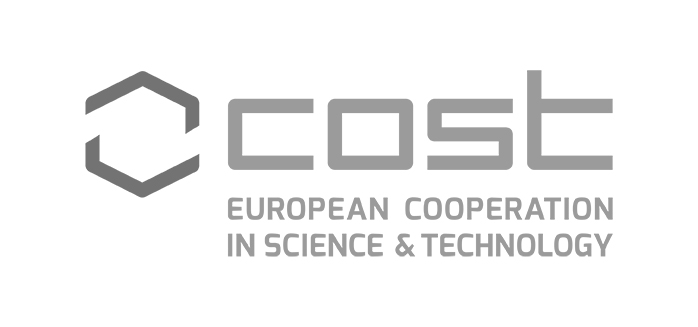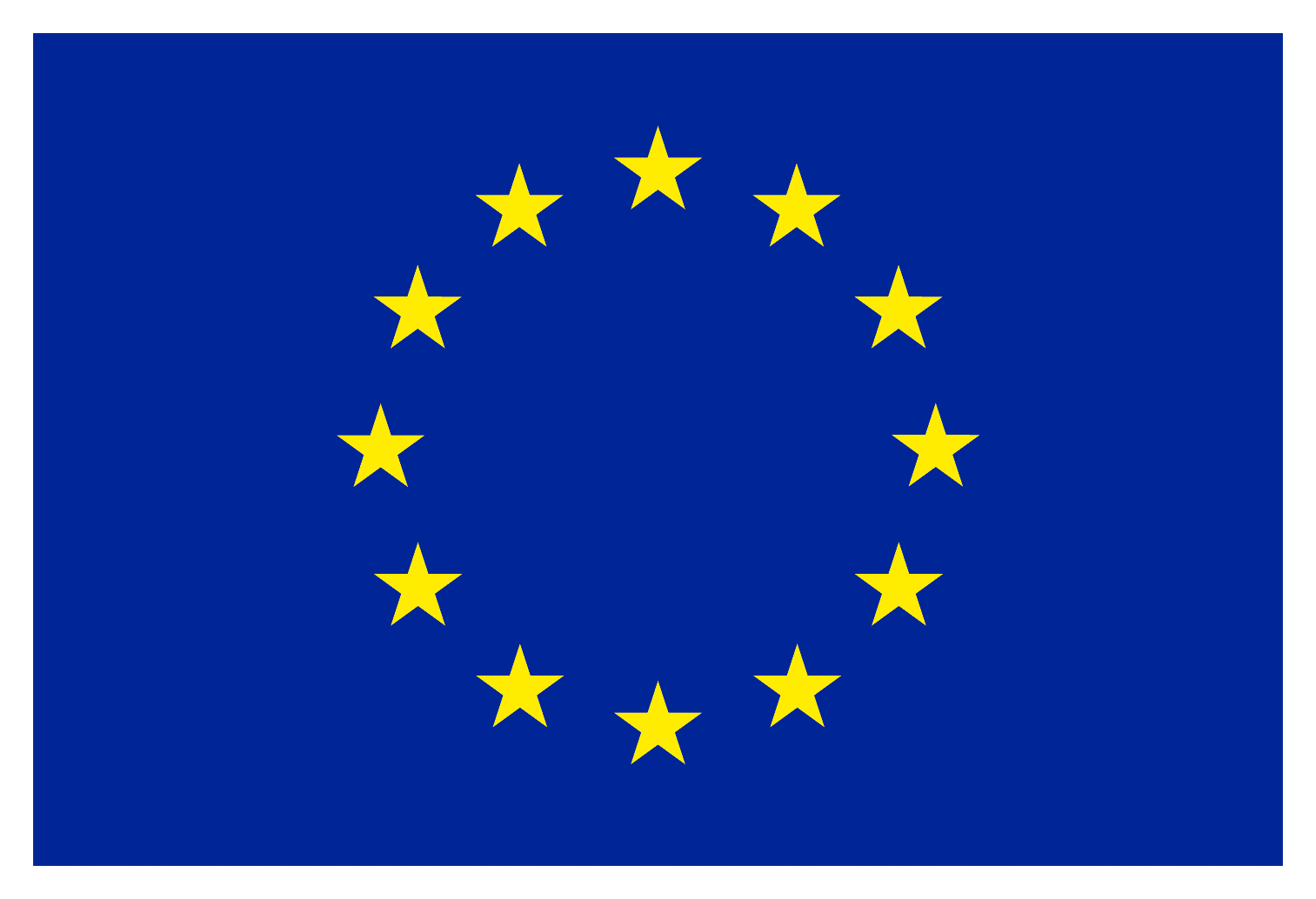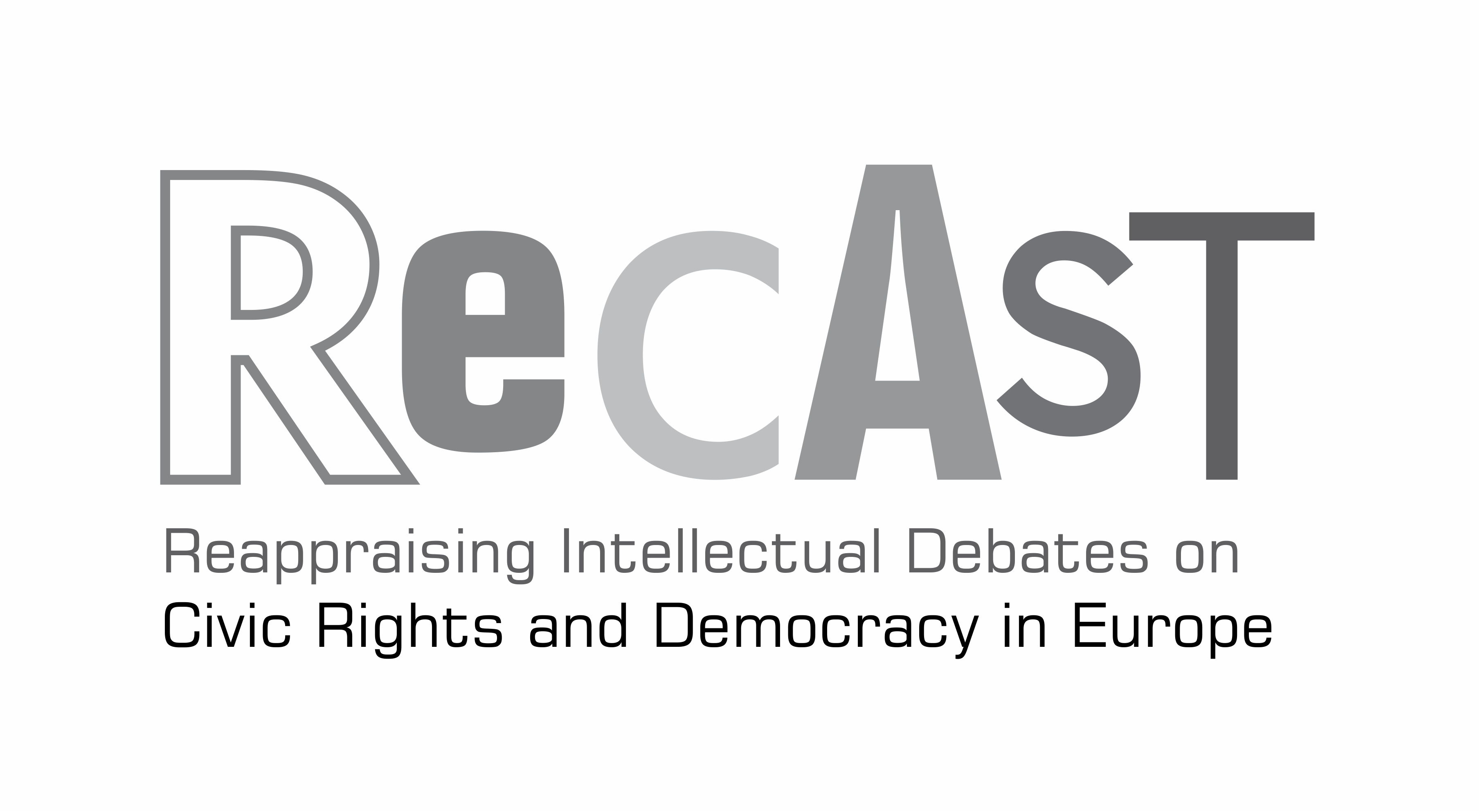WG 1 Workshop 1
COST Action CA 16211 RECAST
Reappraising Intellectual Debates on Civic Rights and Democracy in Europe
Practices 1
Co-organised with the Centre for Liberal Strategies, the Centre for Advanced Study Sofia, and Sofia University 'St. Kliment Ohridski', this first workshop of Working Group 1: Practices, of COST Action RECAST, is scheduled for 23-24 March 2018 in Sofia.
Convened by Ruzha Smilova (Centre for Liberal Strategies and Sofia University) and Meike Schmidt-Gleim (Academy of Fine Arts Vienna), it delves into The Role of Practices at the Intersection of Civic Rights and Democracy.
Report
The first workshop of WG1 Practices explored The Role of Practices at the Intersection of Civic Rights and Democracy with the ambition to raise and discuss some of the major issues to be further addressed within the WG Practices 4-year prospective work.
After introductory words by the chair of RECAST network Prof. José María Rosales, the aims of the workshop were introduced by the co-conveners Dr. Meike Schmidt-Gleim and Dr. Ruzha Smilova. Starting from the hypothesis that the paradigm of social mobilizations and politicization has shifted and that this had contributed to the current crisis of liberal representative democracy, the questions to be addressed are why and how – through what kinds of transformations – this shift has happened. Then the four focus areas of the workshop were introduced: (1) the changing role of civil society organizations; (2) civic mobilizations and the challenge to the nexus between civic rights and democracy; (3) the role of knowledge and expertise in democracy; (4) the use of democratic tools to extend or to limit civic rights and democracy.
The first panel “Civic Movements and NGOs: The Challenge to Build Legitimacy as ‘the Enemies’“ brought together scholars studying civic activism and the changing role of civil society organizations in three countries – Hungary, Turkey and Bulgaria, that recently saw rise in civic activism but also experienced growing populist, and according to some – authoritarian, tendencies in their democracies.
Prof. Renata Uitz (Central European University) opened the panel with a report on “Civil Society Organisations in the Midst of Democratic Backlash” discussing the role of NGOs in Hungary in the current political climate. Having been praised as architects of democracy in the 1980s, they actually promoted the transition and consolidation of democracy in many Central European countries. However, in the current situation they face demonizing attacks from the government. Dr. Özge Zihnioğlu (Istanbul Kültür University) in her presentation “Building Legitimacy and New Civic Activists in Turkey” addressed the questions of how civic organizations can strengthen their domestic legitimacy, how can they weather government attacks and ultimately defend their legitimacy in Turkey’s fraught socio-political context. It also looked into informal practices of civic mobilizations with a potential to revitalize democracy in this country. Prof. Evgenii Dainov (New Bulgarian University), in his talk on “Social Practices – Back to the 1980s (Bulgaria’s Experience)” evaluated the current crisis of democracy as a counter revolutionary moment following up on the liberalizing process of expanding inclusive citizenship since 1968.
The Second Panel on “Protests and Social Movements in Europe” was opened by Prof. Anna Krasteva (New Bulgarian University) who in her presentation “From Civil Society without Citizenship to Green, Contestatory and Solidary Citizenship” claimed that the meaning of citizenship in the post-communist countries has thoroughly changed. She pleaded for the creation of an ‘inclusive intersectionality’ concept of citizenship that combines citizen expertise and discourses, thus multiplying rather than reducing their strength. Prof. Lilia Raycheva and Dr. Nelly Velinova (Sofia University) presented their joint research on “Images of the Social Protests in the Bulgarian Media Ecosystem”, tracking the political and social implications of the new roles audiences play in media activism in Bulgaria. Prof. Anna Krasteva’s presentation sparked a lively discussion on what it takes to build vibrant civil society and what could be the fruitful balance between structure, organization, expertise and funding, on the one hand, and spontaneous civic action, on the other.
The Third panel delved deeper into “The Roots and Manifestations of the Exclusionary and Inclusionary Civic Mobilisations”. Dr. Daniel Smilov (Sofia University), in his talk “Liberal Populism: Origins of the Present Crisis of Liberal Democracy”, discussed the origins of the current counter-revolutionary forces, interpreting the crisis of liberal democracy not in terms of a friend/foe constellation, but rather looking for them within liberalism itself. Dr. Ana Matan (University of Zagreb) in her presentation “Civil Rights under Pressure: Dynamics of Inclusionary and Exclusionary Mobilization in Croatia” analysed recent political mobilization in Croatia.
“The Exclusionary Tendencies in European Democracies” were discussed in the concluding fourth panel of this first day of the workshop. The migration crisis was the background against which Dr. Přemysl Rosůlek (University of West Bohemia) discussed recent developments in the Czech Republic, which he diagnosed as the surprising and spectacular rise of islamophobic tendencies – of “Uncivic Society”. In his “The Three Wise Monkeys of Tolerance”, Dr. Ádám Balázs, (Sofia University) claimed that certain problems around questions of hospitality, tolerance, political correctness and anti-racism arise from misconceptions of these values themselves.
The second day of the workshop started with a discussion of the effects on European democracies of the proliferation of diverse democratic tools. Anita Lunić (University of Split) presented on the (mis)use of referenda in Croatia. Dr. Meike Schmidt-Gleim (Academy of Fine Arts Vienna) in her presentation “Democracy, Post-democracy and What Came After“, discussed recent developments in democratic practices focussing on the transformation of the democratic subject, the people. Dr. Natalija Shikova (International Balkan University, Skopje), discussed specifically civic participation in the process of creation of public policies through Regulatory Impact Assessment (RIA) tool as it is implemented in R. Macedonia.
The Second panel for the day discussed “Elites, Knowledge and Participation in Post-democracies”. Angelina Todorova (PhD candidate, Technical University, Sofia) talked about “Knowledge Management Practices for Post-democracies”, addressing the question how knowledge management practices can be useful for democracy. Dr. Ruzha Smilova (Sofia University and Centre for Liberal Strategies) discussed the role (if any) of elites in post-democracies.
The concluding panel of the workshop gathered civic activists, journalists, bloggers, public figures, businessmen and intellectuals from Bulgaria, who have been involved in different forms of civic and political mobilizations and protests. The conveners invited them to reflect on their experience and in light of it to try to answer the question whether “‘More Democracy’ is a Solution or Part of the Problem for Stronger Civic Rights?” The chair of the panel Anna Krasteva introduced the topic of this concluding panel with words of civic activists from around Europe, who had been interviewed for her book on civic activism.
Dr. Evgeni Kanev, a managing partner at a leading consultancy company in Bulgaria, spoke on the current state and the fast evolving changes of contemporary democracy resulting from the technological changes sweeping the globe. Irina Nedeva, a journalist and civic activist, spoke on the disappearance of the media and the public sphere more generally in the post-truth age. Ivaylo Ditchev, professor of cultural anthropology at Sofia University and an influential voice in the Bulgarian public sphere, disagreed that democracy is somehow over. He, instead, argued that our democracies need slowing down, which could be achieved through bringing in more structure and organization, rather than further accelerate the speed of politics through popular participation. Parvan Simeonov, political scientist and executive director of sociological agency “GALLUP International – Bulgaria” spoke in his capacity as a civic activist, involved in local civic movement in Stara Zagora. He shared his experience with a local referendum – a democratic tool which initially seemed to involve more and better democracy, but under unfavourable conditions proved counterproductive as it contributed to silencing critical voices and thus served to de-democratize local politics. Konstantin Pavlov, a blogger and civic activist, drew an important distinction between democracy as empowerment and “better quality” democracy, and stressed that we can get very different answers to the question about the effects of ‘more democracy” depending on what concept of democracy we use. Tzvetozar Valkov, civic activist, focused on the factors contributing to “better quality democracy”, stressing the role of political parties in particular. The last panellist Victor Lilov, a publisher, civic activist and politician shared his personal experience as a member of two political coalitions which were active during and after the protests of the past few years in Bulgaria, stressing the dangers of fragmented publics, armed with social media, waging culture wars.
During the lively concluding discussion, José María Rosales thanked the participants in this panel for sharing their experience and for allowing us to more clearly see the flaws of closed academic debates on democracy – to better see that they are not always relevant for what happens in real life. He stressed that political theorists often build “models” that are insensitive to historic developments, institutional and other contextual ramifications. A reality check – what practitioners of (liberal representative) democracy think they are doing – is thus refreshing, as it allows us to clarify to ourselves what we are talking about when discussing democracy and civic rights.
The workshop ended with a brief concluding words from both conveners, who also spelled out the tasks for the future work of the WG Practices, as well as indicated the topics for its next workshop.
(Please note this report complements the programme.)
Meike Schmidt-Gleim, Academy of Fine Arts Vienna
Ruzha Smilova, Sofia University and Centre for Liberal Strategies
 |  |  |  |



